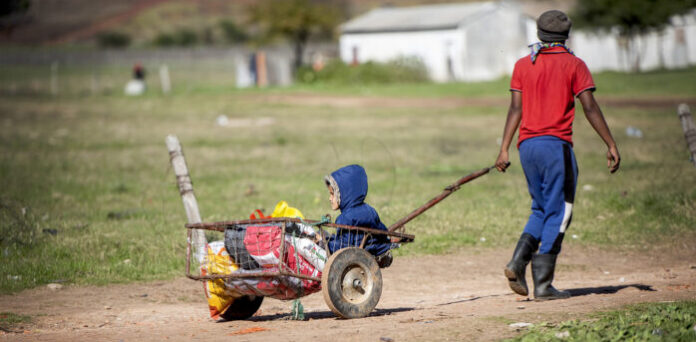The Land Claims Court has put the brakes to an attempt by wealthy landowners to evict an impoverished family from a farm property where they were born and have lived for over 40 years.
Leopont 484 Properties (Pty) Ltd, the owner of the farm Leopont and its shareholder Witzenberg Properties (Pty) Ltd applied for the eviction of the Hendriks family from a portion of the farm in Ceres, Western Cape, in May 2022.
The court heard that the Hendriks’ family patriarch was employed on the farm from 1977 until his retirement in 2007, and he was given the right of residence on the farm as an employment benefit. His wife was also employed on the farm and lived there until her death in October 2021. The court further heard that all the Hendriks children were born on the farm.
After the deaths of Hendriks senior and his wife, the house was allocated to their daughter Betro Mercia Hendriks, who was permanently employed by the farm owners. Betro lives on the property with her four siblings and extended family.
“The rest of the family enjoyed express consent to reside with her on the premises. Housing was allocated to her as an employment benefit. She started working on the farm on 30 September 2004 until her resignation on 2 March 2018,” acting judge Diana Mabasa
noted in her judgment.
Leopont 484 Properties (Pty) Ltd and Witzenberg Properties (Pty) Ltd argued that
Betro’s resignation ended her right to housing.
Mabasa dismissed this claim.
“The family’s residence was historically linked to their father’s status as a long-term occupier, protected under Section 8(4) of Esta. Therefore, the resignation of Ms Hendriks does not affect the broader rights derived from her father’s status, which is where the family’s right of residence originated,” she ruled.
The applicants further accused the Hendriks family of breaching certain sections of the Extension of Security of Tenure Act 62 of 1997 (Esta), through incidents of alcohol abuse and domestic violence, arguing this warranted an eviction.
Mabasa dismissed the claims.
“These claims are unsubstantiated and do not establish ongoing or severe violations that would justify eviction,” she said.
Esta protects the rights of land occupiers and gives long term residents such as the Hendriks family, special rights to remain on the land. The rights can, however, be terminated by a court if it is found they violated certain regulations.
The act also protects the rights of land owners and gives them powers to apply for
eviction should the occupiers commit certain offences.
The court further heard that after representations, the Hendriks family were offered a measly R20 000 as relocation costs. They declined the offer.
Mabasa noted that the Hendriks family were dependants of their late father, who was a long-term occupier under Esta, which protects the rights of dependants of long-term
occupiers and requires 12 months’ written notice before eviction can proceed.
Mabasa dismissed the argument that Breto’s resignation also meant the loss of her rights as a long term occupier.
The Witzenberg Municipality, under which the farm is located, confirmed that it lacks available land or housing to provide immediate alternative accommodation for the Hendriks family.
“The probation officer’s report provided in terms of section 9(3) of Esta concluded that the family would be rendered homeless by an eviction, as they do not have alternative accommodation. Their report recommends that eviction be reconsidered, and the parties engage in further discussions,” Mabasa said.
She ordered that a March 6, 2024, order by the magistrates’ court be remitted to the court for reconsideration.
“The fact that eviction proceedings were only launched after the death of their mother in October 2021 (three years after Ms Hendriks resigned in 2018) supports the contention that they derived their right of residence from their parents’ right of tenure rather than Ms Hendriks’ employment.
“An eviction order would not only affect the Hendriks siblings but also their minor children, putting them at risk of destitution,” Mabasa ruled.
“Given the lack of alternative accommodation and the applicants’ failure to offer reasonable housing solutions, it would be neither just nor equitable to enforce an eviction.”
She further added that the applicants failed to comply with the procedural requirements for an eviction in terms of Esta.
“Mediation is recommended to explore suitable housing alternatives,” she said.
Studies by land rights organisations have noted that more than one million people have been illegally evicted from farms since 1994. In most cases, the respondents had no adequate legal representation.



